13 Signs You’re Not Taking Proper Care Of Your Dog

Being a dog parent means more than just providing food and shelter. Our furry friends depend on us for their health, happiness, and overall well-being.
Sometimes we might not realize we’re falling short in our care duties. Watch out for these warning signs that suggest your canine companion might need more attention and better care.
Constant Scratching And Skin Issues

Persistent itching isn’t just annoying for your pup—it’s a red flag. Fleas, allergies, or skin infections could be the culprits behind your dog’s discomfort.
Regular grooming and parasite prevention are non-negotiable parts of pet care. If your four-legged friend can’t stop scratching, it’s time for a vet visit rather than hoping the problem will magically disappear.
Overgrown Nails Clicking On The Floor
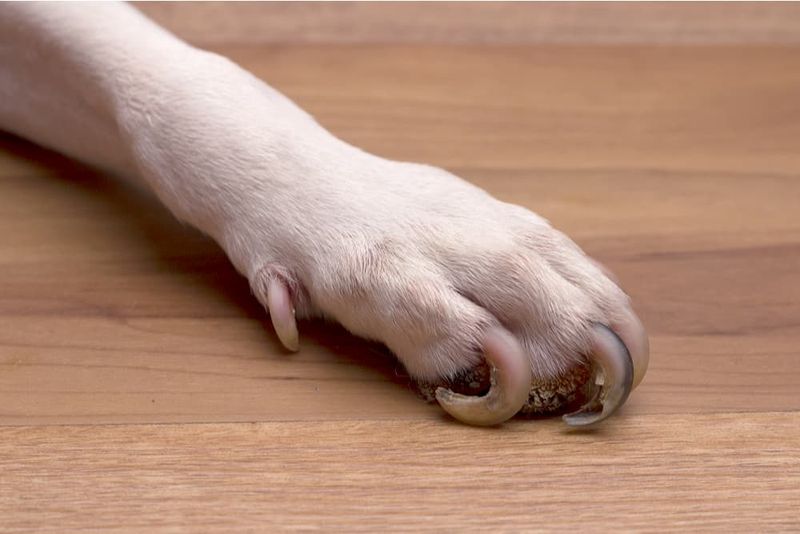
Those tapping sounds aren’t just annoying—they signal neglect. Long nails can split, crack, or grow into paw pads, causing pain with every step your furry friend takes.
When nails touch the ground while walking on hard surfaces, they’re too long. Monthly trimmings keep paws healthy and prevent altered walking patterns that can lead to joint problems down the road.
Bad Breath That Makes You Recoil
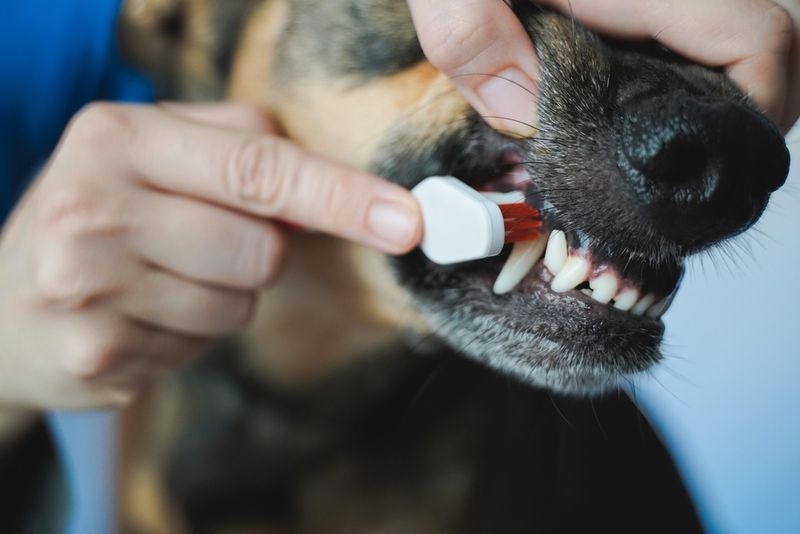
Fido’s kisses shouldn’t clear a room. That dragon breath indicates dental problems like plaque buildup, gum disease, or tooth decay—all painful conditions your pet can’t verbalize.
Just like humans, dogs need dental care. Without regular brushing or professional cleanings, bacteria multiply, eventually affecting vital organs like the heart and kidneys. Fresh breath isn’t just about your comfort—it’s about your dog’s health.
Visible Weight Issues
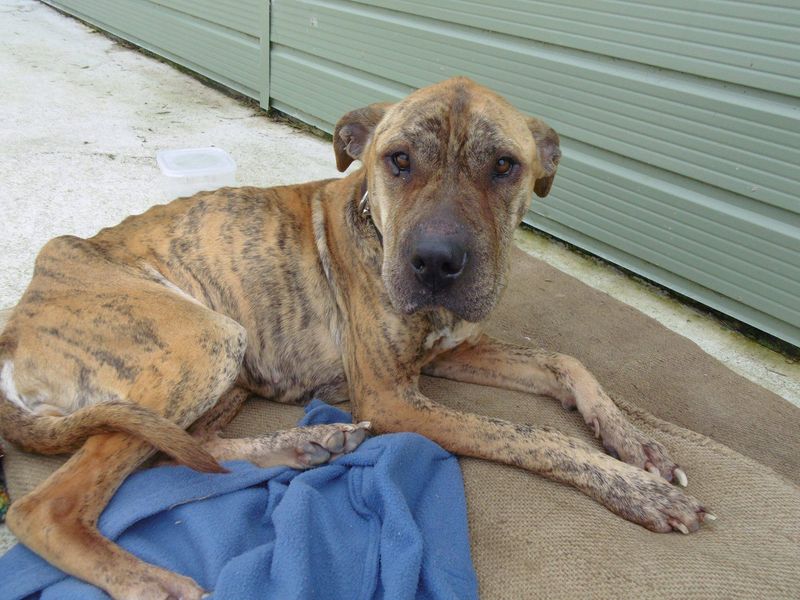
Ribs showing too prominently or a belly that swings side to side? Both extremes spell trouble. An overweight pup faces joint problems, diabetes, and shortened lifespan, while underweight dogs may have underlying health issues or inadequate nutrition.
Maintaining healthy weight requires proper portioning and exercise tailored to your dog’s breed, age, and activity level. Your veterinarian should be able to feel—not see—the ribs during examination.
Destructive Behavior When Left Alone

Coming home to demolished furniture isn’t your dog being spiteful—it’s a cry for help. Chewed shoes, scratched doors, and shredded pillows point to separation anxiety or boredom from lack of mental stimulation.
Dogs are social creatures needing interaction and enrichment. Puzzle toys, adequate exercise before alone time, and gradual training can help. Destruction often signals that your pup’s fundamental needs aren’t being met.
Matted, Dirty Fur That’s Rarely Brushed

Fur that’s clumped, tangled, or downright dirty isn’t just unsightly—it’s uncomfortable and unhealthy. Mats pull on skin, trap moisture, and create perfect hiding spots for parasites.
Different coat types need different care routines, from daily brushing for long-haired breeds to occasional baths for shorter coats. When grooming becomes an afterthought, your dog suffers silently under the weight of neglected fur.
Skipped Vet Visits And Outdated Vaccinations
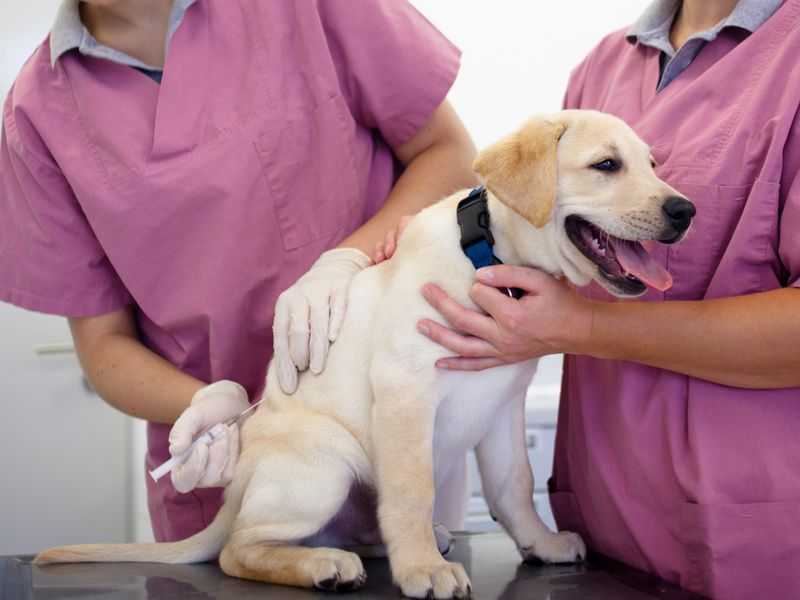
Annual check-ups aren’t optional luxuries—they’re essential preventative care. Diseases caught early are often more treatable and less expensive than when discovered in advanced stages.
Lapsed vaccinations leave your furry friend vulnerable to preventable illnesses like parvo, distemper, or rabies. Your dog relies completely on you for medical care; there’s no way they can remind you it’s time for their shots.
Excessive Barking That Never Gets Addressed

Constant barking isn’t your dog being difficult—it’s communication. Whether from boredom, anxiety, territorial behavior, or seeking attention, excessive vocalization signals unmet needs.
Ignoring the behavior without addressing the root cause creates a stressed, unhappy pet. Training, mental stimulation, and proper exercise can significantly reduce problem barking. Your neighbors will thank you, but more importantly, your dog will be happier.
Limited Or Nonexistent Exercise Routine

A quick bathroom break isn’t sufficient exercise for most dogs. Without regular physical activity, pent-up energy transforms into behavior problems, weight gain, and diminished mental health.
Every breed has different exercise requirements—border collies need more than bulldogs—but all dogs benefit from daily movement. A tired dog is a happy dog, while an under-exercised one becomes destructive, anxious, or depressed.
Constantly Leaving Your Dog Alone For Long Periods
Dogs are pack animals who crave companionship. Regularly leaving your furry friend alone for 10+ hours creates anxiety, depression, and behavior problems.
If your schedule keeps you away most of the day, consider dog walkers, daycare, or asking friends to visit. The psychological impact of extended solitude can be as harmful as physical neglect. Your dog counts the hours until your return.
Inconsistent Training And Boundaries
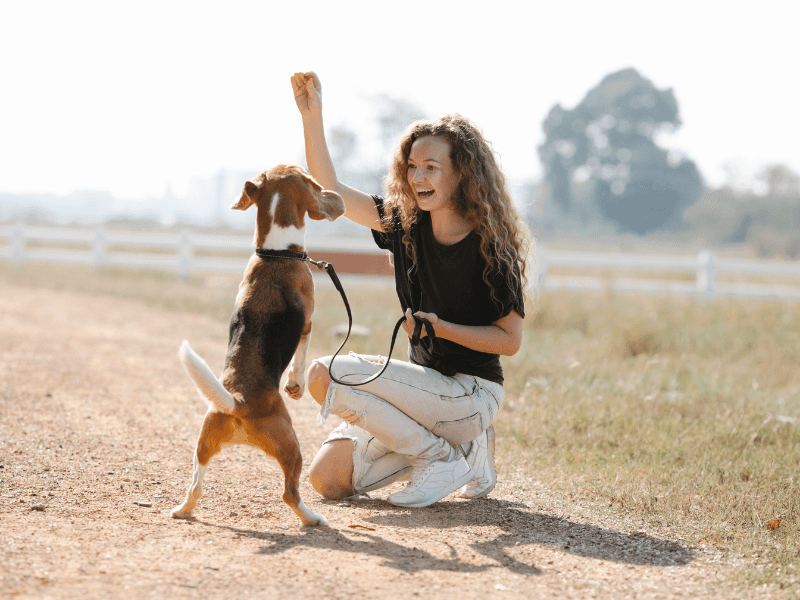
Flip-flopping rules confuse dogs and create anxiety. When jumping is sometimes rewarded with attention but other times punished, your pet can’t understand what’s expected.
Clear, consistent boundaries provide security, not restriction. Dogs thrive knowing their place in the household hierarchy. Without this structure, they become insecure and may develop problematic behaviors as they try to figure out their role.
Ignoring Signs Of Pain Or Discomfort

Dogs instinctively hide pain—it’s a survival mechanism from their wild ancestors. Subtle changes like reluctance to climb stairs, decreased appetite, or unusual aggression when touched often signal discomfort.
Waiting until symptoms become severe means your pet suffers unnecessarily. Learning to recognize pain indicators specific to your dog allows for prompt intervention. Remember, they can’t say “it hurts”—they rely on you to notice.
Poor Quality Food Or Improper Diet

Bargain basement kibble filled with fillers and by-products won’t sustain health long-term. Nutrition affects everything from coat quality to energy levels to lifespan.
Reading ingredient labels matters—meat should appear first, not corn or wheat fillers. Age-appropriate formulations matter too; puppies, adults, and seniors have different nutritional needs. Proper diet prevents countless health issues down the road.






